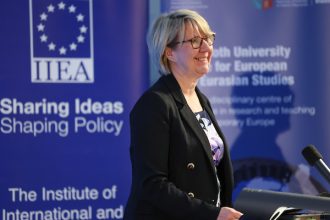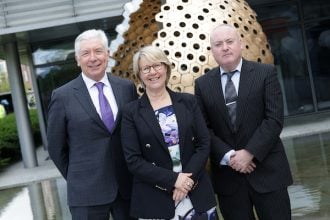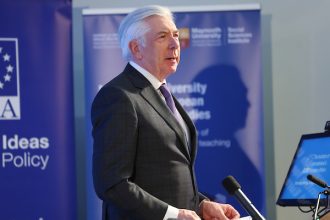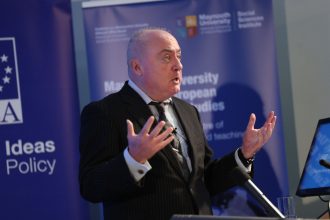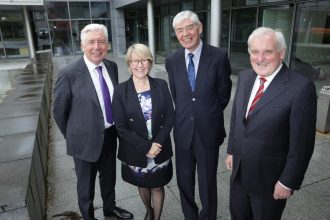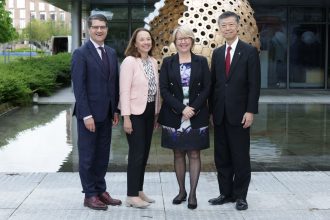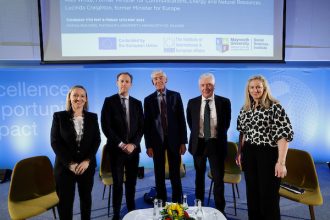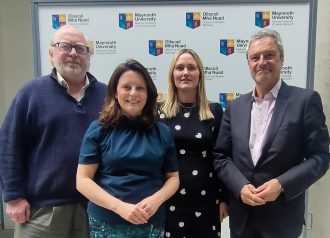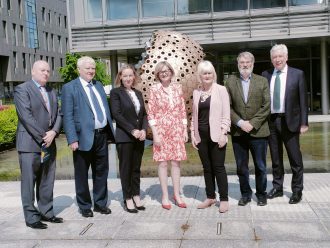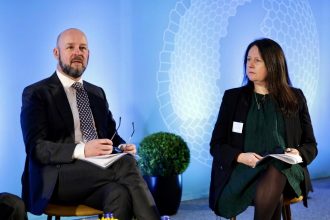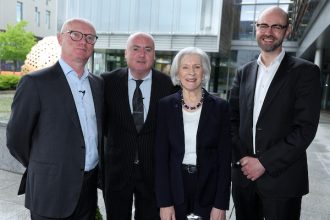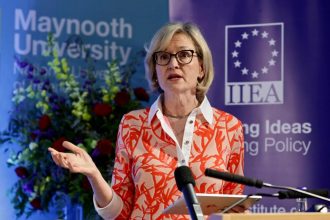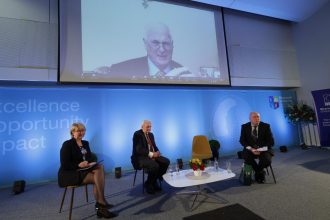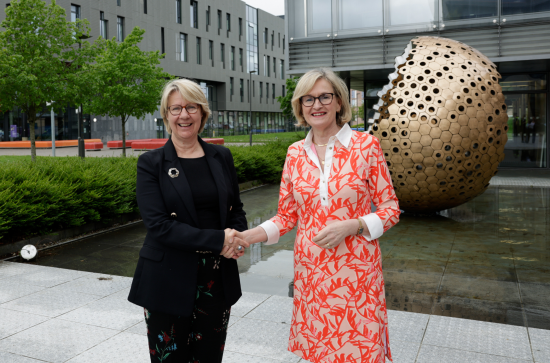
Maynooth University is hosting a watershed two-day event marking the fiftieth anniversary of the EU, bringing together politicians, academics, diplomats, policy makers and members of civil society to evaluate the highs and lows of Ireland’s membership.
On 1 January 2023, Ireland reached a historic milestone - the fiftieth anniversary of its accession to the European Communities. Co-organised by Maynooth University and the Institute of International and European Affairs (IIEA), this unique event examines the span of Irish membership of the EU from the perspective of policy, politics and transformation.
The conference will reflect on the most important themes that helped define 50 years of Ireland's participation in European integration, and share insights into events that continue to shape Ireland’s role within the EU.
A range of politicians from across the political spectrum are gathering at Maynooth University over the next two days, including Mairead McGuinness, EU Commissioner for Financial Stability, Financial Services, and the Capital Markets Union; former Taoisigh Bertie Ahern and John Bruton and Alan Dukes, former Minister for Finance. Guest speakers also include Barry Andrews, MEP, and former Minister of State for Children; Director General of the IIEA Alex White, former Minister for Communications, Energy and Natural Resources, Marian Harkin, TD and former MEP, and Proinsias de Rossa, a former Government minister and former MEP.
Academics from universities across the island include Professor John O’Brennan, Maynooth University, Dr Mary C. Murphy, UCC, and Dr Lisa Claire Whitten, Queens University Belfast among many others.
Opening the conference, President of Maynooth University, Professor Eeva Leinonen, said: “I am delighted that one of the major conferences reflecting on Ireland’s relationship with the European Union should take place at Maynooth University. I am glad to say that Maynooth University is very closely involved with partners across the EU in addressing many of these key societal challenges, collectively and collaboratively.
“We now have more than 2,000 students taking modules on ‘Europe’ in any given academic year. Our University has forged excellent collaborations in research and teaching with universities across Europe, most recently through the Arqus European University Alliance, and we continue to expand that cooperation. The EU is justifiably considered an important vehicle that facilitates and supports such endeavours.”
Speaking at the opening session Alex White, IIEA Director General said: “Since 1973 a key feature of Ireland’s EU membership has been public debate about Ireland’s role in Europe, expressed most intensely during referendum campaigns. It has now been 14 years since the last EU referendum in Ireland which is more than a lifetime in politics. But the EU will have to change the way it works. From how decisions are made, to the areas EU members cooperate on, big questions will need to be answered. Covid 19 showed us that Europe working together to supply vaccines was of great benefit to Ireland. So, should health now become an EU competency? That would require treaty change. The IIEA is delighted to co-host this conference, assessing the past 50 years, and looking ahead to the next chapter of Ireland’s European engagement.”
John O’Brennan, Jean Monnet Professor of European Integration at the Centre for European and Eurasian Studies, Maynooth University, said: “The fiftieth anniversary of Irish accession to the European Union is an appropriate moment to stop and reflect on what has been achieved over 50 years of increasing cooperation with partner states in Europe. Ireland is often viewed as one of the great success stories of the European project. There is lots of evidence to support this view. But we have also made mistakes which complicated relations with our partner states. The conference will reflect on the lessons we might learn from our participation in the EU and how we can drive forward further transformation of the country, especially through cooperation on climate change, with our EU partner states.”
